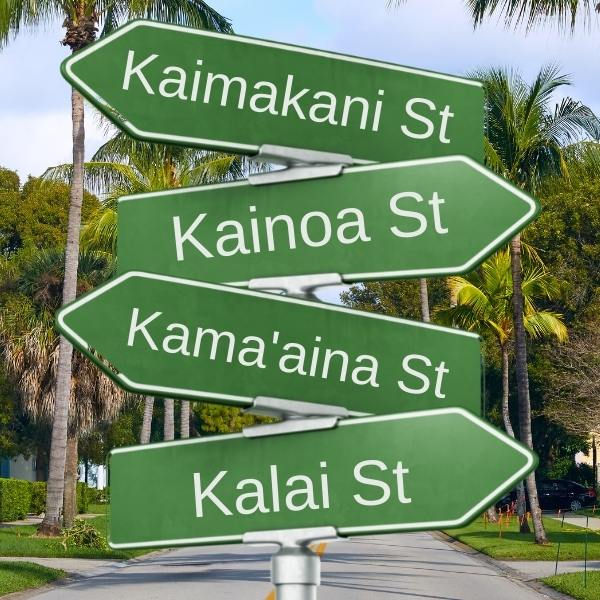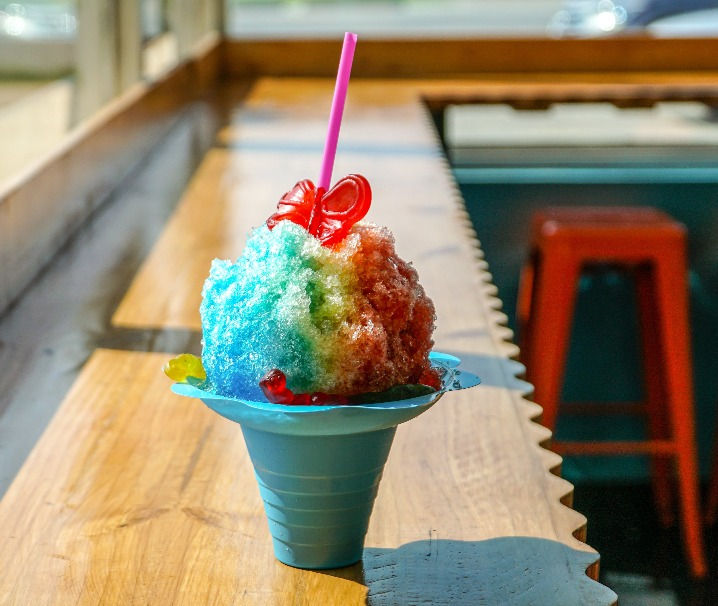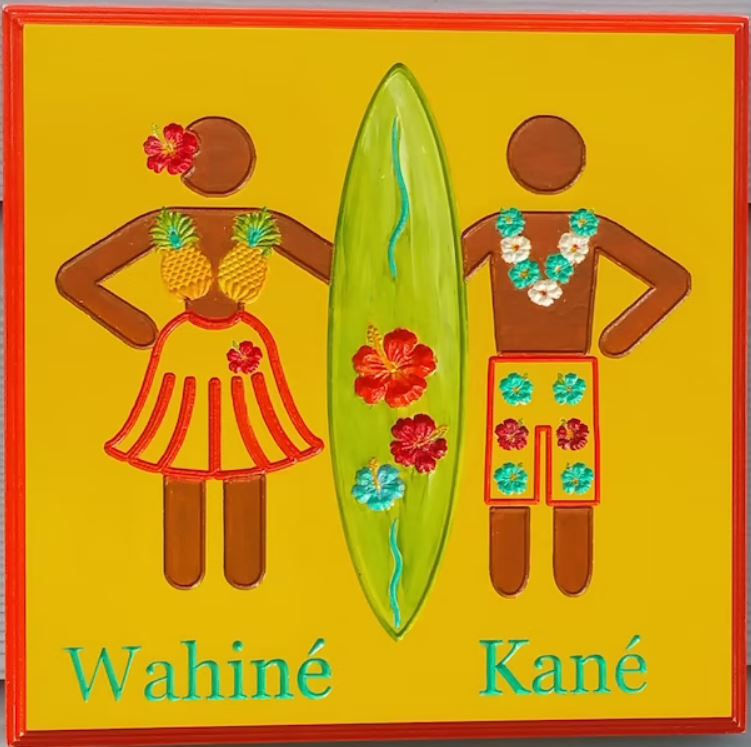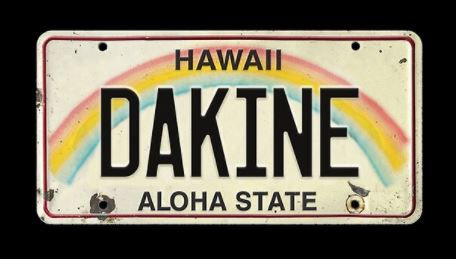So a question we often get from new residents or visitors to the island is about language. More specifically, what something they saw on a sign means or a term someone said in a conversation.
If you have never been to Hawaii you may not realize that the Hawaiian alphabet contains only 13 letters A, E, I, O, and U are Vowels. H, K, L, M, N, P, and W are consonants.
The okina mark ( ' ) is also considered a consonant and represented as a reversed apostrophe and indicates a clean break between vowels.
Whether you're just visiting or just moved to Hawaii and not used to seeing these words it can make Hawaiian words a little intimidating to try to pronounce.

With so few letters many Hawaiian words can start to look alike.
This can be especially confusing when you are following directions or looking for street names.
Some may only differ by just a letter or reversed vowels.
Another thing you may not realize is that in Hawaii, many times what you are hearing is Pidgin, or Hawaiian Creole, not the actual Hawaiian language.
You hear and see Hawaiian words in everyday life, but often, it is Pidgin that you hear being spoken.
People often wonder, do I need to speak some Hawaiian or Pidgin before coming to Hawaii?
No, but I bet before you leave, you will know some! That's because the Hawaiian language and Pidgin lingo are infused into our daily lives on the islands. So you will hear it all around you.
Either way, it is the Hawaiian way so, soak it up and dig in!
Hawaii is a Melting Pot: The Beginnings of Hawaiian Pidgin
Hawaii is a melting pot and its language is no different.
So why Pidgin and not just Hawaiian or English?

Hawaiian Creole or what we call Pidgin is a staple of the Hawaiian islands and may differ slightly from island to island. "First used in the mid-19th century by the sugarcane laborers who spoke Japanese, Chinese, Portuguese, and English and needed a way to communicate with one another, today, the language is common across the islands of Hawai‘i."
You see this not only in the language but in every aspect of daily life in Hawaii. It is one of the things that makes Hawaii a very special place.
The terms you hear are infused in our daily lives and it would be hard NOT to pick some up, even if just visiting the islands for a short while.
However, if you understand a few sayings before you come it will be super helpful. Plus, you may already know a few phrases and yes, people who live in Hawaii really do use these phrases in their daily life.
So don’t feel scared to use them too!
Greetings and Gratitude for your Hawaiian Vacation

Aloha - Pronounced - a-lo-ha - used as hello and goodbye. It will likely be the first Hawaiian word you hear and the one Hawaiian word most people know.
Mahalo – Pronounced - mah-ha-loh – used to say thank you. You will hear this very often while in Hawaii. Used for all occasions to say thank you.
If you are feeling exceptionally thankful you can say mahalo nui loa - pronounced mah-ha-loh noo-ee loh a - for thank you very much.
Howzit - Pronounced - how-zit - Howzit is not a Hawaiian word as it is a local pidgin phrase. It is my personal favorite and if you know me, you know I use it every time we meet! It means How are you doing? How’s it going? What’s going on? This is a term to use with friends and family in a casual setting.
A hui hou - Pronounced - a who-wee-hoe – is used when leaving or saying goodbye to someone as in - until we meet again or see you again soon.
Kōkua- Pronounced - ko-ku-a- it means
to help or lend assistance. You will see this on many signs around the islands.

Helpful Hawaiian Words to Know
OK, so we’ve covered greetings and polite words to use. Let us get into some of the things you will see and their Hawaiian names.
Honu - Pronounced - hoe-nu - Hawaiian Sea Turtle - The Big Island is known for its honu. You will see them laying on the sand or swimming at many of our gorgeous beaches. If you snorkel while in the islands they will often be offshore swimming in the surf or around the coral.
They are beautiful creatures and truly a treasure of the Hawaiian Islands.
Please note these turtles are on the endangered species list, so if you spot them just stay at least 10 feet away while observing these beautiful turtles.
Mauka - Pronounced - Mau-ka- means mountain - you may be told when given directions, "it's Mauka side down the road". What they mean is that is going to be on the side opposite the beach. The mountainside of the island or the interior of the island.
This leads us to our next word. Makai - Pronounced - Ma-kai- seaward or oceanside. So now when given directions you know if you heading toward the beach or the mountain.
In Hawaii, we use the directions mountainside and beachside (mauka and makai) much more than left, right or east, and west.
'Aina - Pronounced - eye-nah and it means the land or that which feeds us. You will see this many places, especially at parks or trails asking you to respect the 'Aina.
Helpful Hawaiian and Pidgin Terms for Food and Restaurants
One of the best parts of visiting or living in Hawaii is the access to exceptional food. The blending of cultures here in the islands makes for some amazing dining options! I guarantee that you will have some of the best food of your life here on the islands!

Let's give you some terms so that when asking around about a great place to eat you better understand what people may be telling you.
Ono-Grinds- Pronounced - oh-no grinds - a local term for great food! Ono means delicious and grinds is a local term for great food! Check out our local food trucks for some ono grinds!
Broke da' mouth - the food is delicious! As in, "The food is so good, it broke da' mouth".
Poke-Pronounced-po-ke- is diced raw fish served either as an appetizer or a main course. You will find Poke spots everywhere in Hawaii and everyone will tell you their spot is da' best! Poke is a staple in Hawaii and every family has its own recipe.
Shoyu - Pronounced- Show-you- a local and Japanese term for soy sauce. You will hear soy sauce and shoyu used interchangeably and it will be on the table at almost all restaurants.
Shave Ice or Ice Shave???? AKA - the giant Hawaiian snow cone. Well, that depends on what island you are on!

On the Big Island, we say Ice Shave, but on the other islands, it will be Shave Ice.
Either way, it's a real treat and even if you say it wrong, no problem you will still be served a yummy treat!
The hard part will be picking from the huge selection of flavor combos offered. Since it has been served on the islands since 1897, there has been a lot of time to come up with unique combos.
Enjoy more than one while you are here. You won't regret it!
While our next word is not a food word, it is used on signs for restaurants often.
Pau Hana - Pronounced - pow-ha-na- this means time to quit working or after work. You will see many bars and restaurants run Pau Hana specials it will be the equivalent of the mainland Happy Hour.
Hawaiian Terms for people
Wahine - Pronounced - Wa-he-nee - this is the term for a female
Kane- Pronounced Ka-ney- this is the term for a male

Keiki - Pronounced - Kay-Key- this word is used for the child. A Keiki can be a baby, but you will also hear a person use it as a term for their younger children in general.
Ohana - Pronounced - O-ha-na - Also, one of the more famous Hawaiian words. It was used in a catchphrase of the very popular Disney movie set in Hawaii, Lilo and Stitch, and as they say in the movie - Ohana means family.
Auntie/Uncle - I have often been asked, "How big is your family, you have so many Aunties and Uncles?", because they have heard me use this term with multiple people.
In Hawaii, we refer to someone older than us as Auntie or Uncle. This does not mean that they are related. In Hawaii, this is a term of respect for someone older than you.
Kupuna - Pronounced Ka-pun-a - a senior or honored elder. Many places will have a kupuna hour for seniors to shop before main store hours.

Da'Kine - The King of all Pidgin Words
Da'kine has become synonymous with Hawaii. Da' best way to describe da'kine is that - it is the word when you don't have a word. It can be a place, person, or thing.
Really it can be anything. I have heard conversations where da'kine was every other word and still, the people both knew what they were talking about!
Da'Kine is pure Hawaii!
Hawaii gets in your soul
Hopefully, you will find these terms useful and a little more familiar to the ear while in Hawaii. I encourage you to get familiar with them and try them out. It may just make your vacation a lot more fun!
There is something special about the Hawaiian islands, they are a place that has a magic all its own. For many people, it becomes a place you can't shake. It was for us!
For those of us that call Hawaii our home, we are grateful to live among such beauty. Beauty not just of the island itself, but the amazing mixing pot of people and cultures.
We hope your visit or move to the Hawaiian islands is everything you hoped it would be! Hawaii gives what it gets, come here with an open mind and a kind heart and the islands will welcome you, again and again. Be sure to use these Hawaiian pidgin words for your next vacation!
Aloha and a Hui Hou!
Resources used in this article:
KIANOOSH HASHEMZADEH associate editor at Zócalo Public Square. - May22,2019 credit https://www.zocalopublicsquare.org/2019/05/22/why-hawaiian-pidgin-is-thriving-today/events/the-takeaway/


Comments